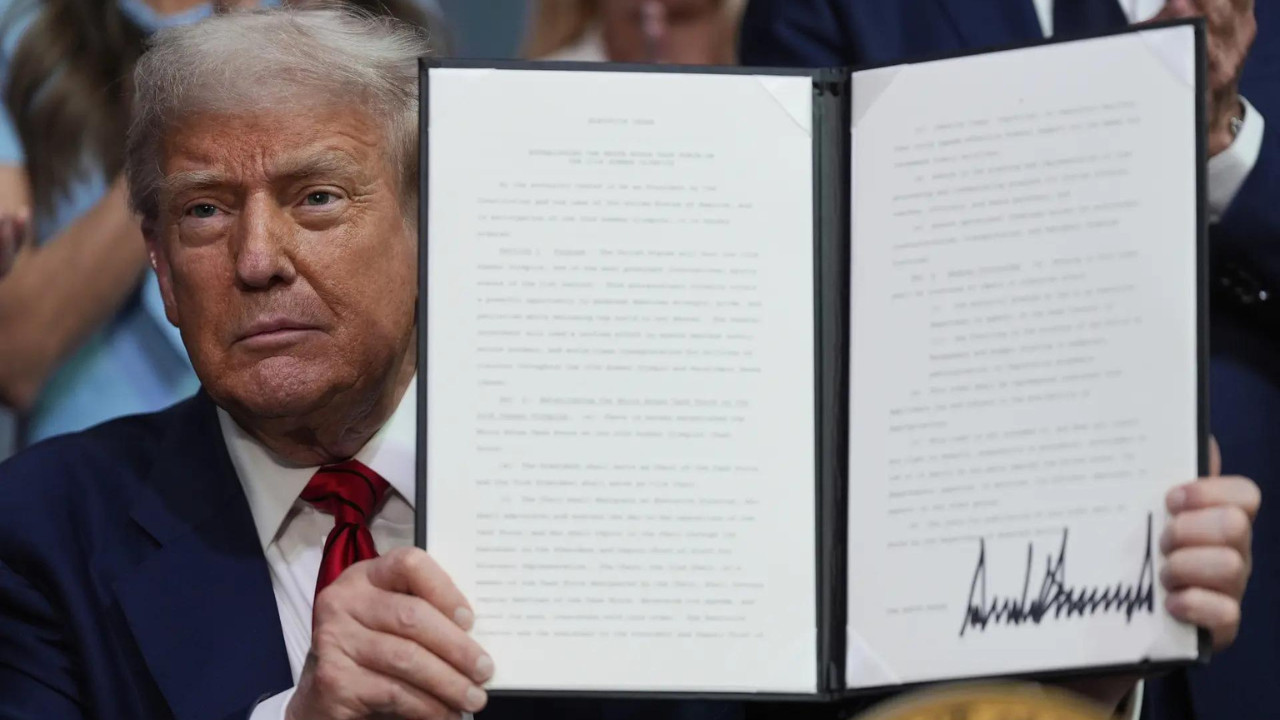US President Trump on Monday threatened trade measures against nations with digital taxes targeting American tech giants, deeming them discriminatory. He warned of tariffs and export restrictions on technology and chips if these policies persist. Dozens of countries impose digital services taxes, prompting debates over fair contributions from tech companies.
Digital Taxes: Are Global Tech Giants About to Pay the Price?
The world of international trade is rarely quiet, but recent pronouncements have certainly upped the ante. The gist? If countries start slapping digital taxes on American tech giants, then the U.S. might just respond with more tariffs. It’s a high-stakes game of economic chess, and the opening moves have certainly been dramatic.
It’s no secret that many nations look at the revenue generated by massive tech companies like Google, Amazon, and Facebook with a mixture of envy and, perhaps, a sense of entitlement. After all, these firms often operate across borders, drawing profits from local markets without necessarily paying what those markets deem a “fair” share in taxes. The argument, often, is that traditional tax structures simply haven’t caught up with the realities of the digital economy. But what happens when a government decides to target these companies with digital taxes?
The Spark: Digital Taxes and the US Response
The notion of digital taxes has been brewing for a while. Several European countries and others worldwide have either implemented or are considering taxes specifically designed to target the revenue generated by digital services. These taxes often focus on things like online advertising revenue or revenue from digital marketplaces. The reasoning is that traditional corporate tax structures don’t adequately capture the value created by these digital activities within their borders.
The United States, however, views these digital taxes as discriminatory, arguing that they disproportionately target American companies. The underlying sentiment? These taxes are essentially an attempt to unfairly extract revenue from successful U.S. businesses. And the response has been clear: impose tariffs on goods imported from those countries levying digital taxes.
Tech Giants: Not Piggy Banks
The US stance is that American tech companies aren’t simply giant piggy banks to be raided by other countries. While discussions on global tax reform have been ongoing for years, the US seems less inclined to wait for a multilateral solution.
The US Trade Representative (USTR) has the authority to investigate and retaliate against trade practices deemed unfair or discriminatory. In the case of digital taxes, the USTR could recommend tariffs on goods from countries that impose them, potentially disrupting trade relationships and escalating economic tensions.
Imagine, for example, a country imposing a 3% tax on all online advertising revenue generated within its borders. This tax would inevitably hit companies like Google and Facebook hard. In response, the U.S. could impose a 25% tariff on certain goods imported from that country, effectively making those goods more expensive for American consumers. It’s a tit-for-tat scenario with potentially far-reaching consequences.

The Implications for Global Trade
The threat of escalating tariffs is concerning. Trade wars are rarely beneficial in the long run, often leading to higher prices for consumers and disruptions to supply chains. Furthermore, the issue of digital taxes isn’t going away. As the digital economy continues to grow, more countries are likely to explore ways to capture a larger share of the revenue generated by tech giants.
This situation highlights the need for a more comprehensive and internationally agreed-upon framework for taxing the digital economy. The OECD (Organisation for Economic Co-operation and Development) has been working on developing such a framework, but progress has been slow.
While the current situation may seem like a standoff, it could also serve as a catalyst for renewed efforts to find a global solution. The alternative – a fragmented landscape of digital taxes and retaliatory tariffs – is likely to be detrimental to all parties involved.
Interested in learning more about international trade agreements? Check out our article on [the latest developments in global trade policy](link-to-relevant-internal-page).
Navigating the Digital Tax Minefield
Ultimately, the dispute over digital taxes underscores the challenges of adapting traditional tax systems to the modern digital economy. Whether through tariffs, negotiations, or a combination of both, finding a sustainable solution is crucial for maintaining stable international trade relations. The stakes are high, and the world is watching to see how this game of economic chess will ultimately play out.
The future of global trade hinges, in part, on finding a fair and equitable way to tax the digital economy. As technology continues to reshape the world, governments and businesses alike must adapt and collaborate to ensure a level playing field for all. This evolving landscape warrants close attention, as the decisions made today will have lasting consequences on the global economy.







